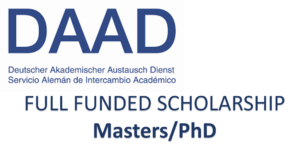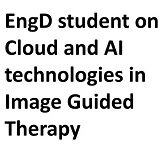Research Grants – Doctoral Programmes in Germany • DAAD.
Who can apply?
Applicants with outstanding academic records, who have completed their Master’s or Diplom degree (or, in exceptional cases, a Bachelor’s degree) by the start of the funding period, are invited to apply
Funding Opportunities
This program supports doctoral research in Germany at:
- State-recognized universities
- Non-university research institutes
Funding options include:
- Individual projects under university supervision
- Structured doctoral study programs
Additionally, research stays abroad (up to 25% of the funding period) can be funded if essential for completing your PhD. You must outline these plans in your application documents, including a detailed study plan and timeline.
Duration of Funding
- Funding is available for up to four years. The duration is determined by a selection committee based on the nature of your project and study plan.
- Grants are initially granted for up to one year, with possible extensions contingent upon the selection committee’s evaluation of your performance during the initial award period.
Value
- Monthly stipend of 1,300 euros
- Coverage for health, accident, and personal liability insurance (refer to section F, point 4 of the important information for scholarship applicants)
- Travel allowance
- Annual research allowance of 460 euros.
Additional Benefits
- After funding begins, you may apply for the following additional benefits under certain conditions:
- Monthly rent subsidy (refer to important scholarship information, section F, point 9).
- Monthly allowance for accompanying family members (see important information for scholarship applicants, section F, point 3).
- For individuals with a disability or chronic illness: A subsidy may be available to cover justified additional costs incurred in Germany due to the disability, which are necessary for the project and not covered by a third party. The decision on whether and to what extent the subsidy will be provided is made on a case-by-case basis (refer to section F, point 8 of the important information for scholarship applicants).
Language Support
- To help you enhance your language skills before your stay in Germany, the DAAD offers the following services:
- Coverage of course fees for an online language course upon receipt of the Scholarship Award Letter.
- If needed, a language course (lasting 2, 4, or 6 months) before the start of your research stay in Germany. The DAAD will determine the necessity and duration of this course based on your language skills and project requirements. Participation is mandatory if the course is funded and the working language at the host institute is German.
- Allowance for a self-selected German language course during the grant period.
- Reimbursement of fees for the TestDaF or DSH test, which can be taken either in your home country after receiving the Scholarship Award Letter or in Germany during your funding period.
Selection Process
An independent committee of expert scientists evaluates the applications.
The selection criteria include:
- Qualification
- Academic performance (GPA, grade progression)
- Academic development
- Proficiency in the language(s) of instruction or working language(s)
- If applicable, scholarly achievements post-graduation (e.g., publications, lectures, conference presentations)
- Quality of Research Project
- Quality and preparation of the research proposal (originality, relevance, and importance of the project; selection of host institution and initial contacts)
- Feasibility and coherence of the study plan and timeline
- Integration of the project within the broader doctoral program (in terms of content and timing), if applicable
- Applicant’s Potential
- Career prospects: the significance of the research project and stay in Germany for the applicant’s academic, professional, and personal development
- Motivation: academic and personal reasons for wanting to study in Germany, including German language proficiency (if different from the working language)
- Extracurricular activities: relevant non-academic knowledge, skills, and civic engagement
The selection committee also considers equal opportunities, and applicants may provide relevant information in their application form.


